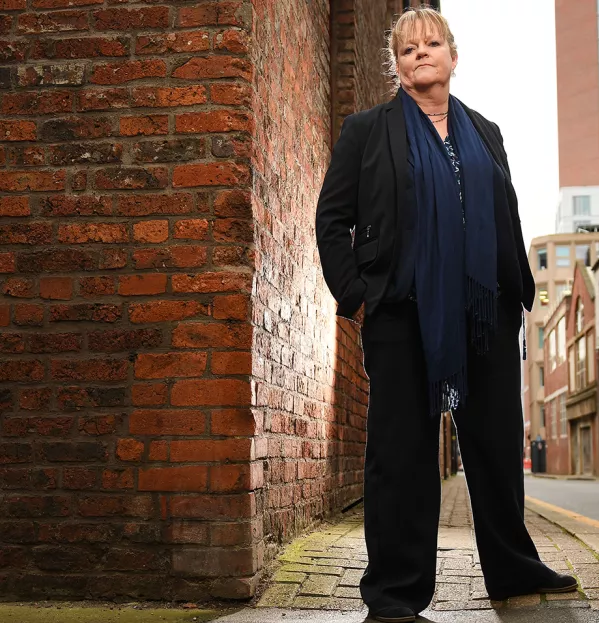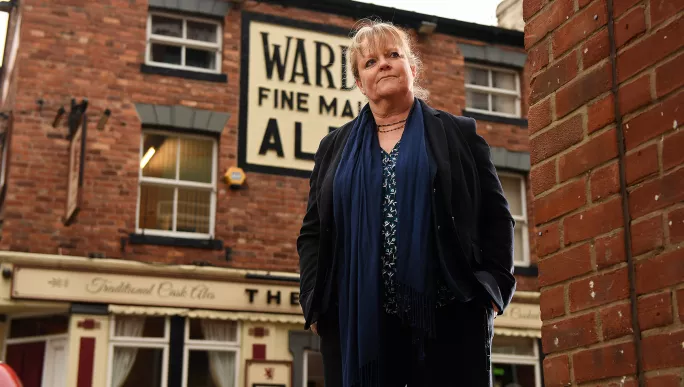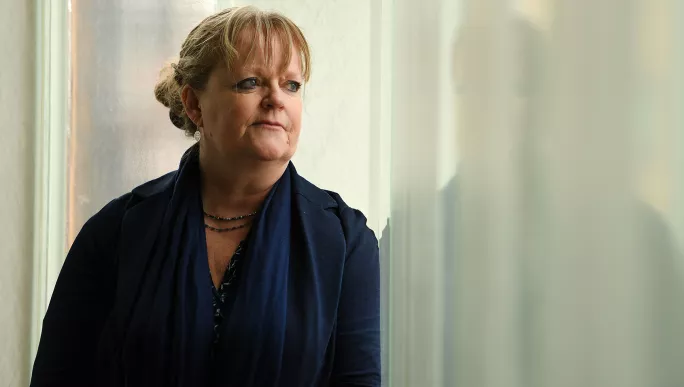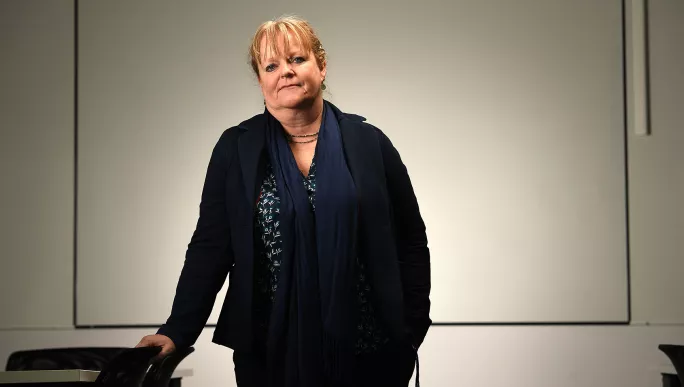Sam Twiselton: my experience inside the ITT review

Professor Sam Twiselton thought she could limit the damage. She knew the government would push through reforms to the initial teacher training (ITT) sector with or without her. And, ultimately, she says she knew that if she turned down the chance to be part of the expert advisory group in charge of the reforms, the end result would likely be much, much worse for the sector that she has served for more than 30 years.
But speaking exclusively to Tes about the past three years in which those reforms have been planned and rolled out, she’s clear that - in her view - the result has left most of those involved unhappy.
“It could be that we’ve gone through all this and we’ve not made things better - we’ve made things worse,” she concedes.
Twiselton wants to talk about why she feels this way, to explain where she thinks things went wrong, and to reveal the reason why she is still, in a small way, hopeful.
Teacher training reforms
Work on a review of the ITT market, led by an “expert advisory panel”, first began in early 2020, but it was put on hold owing to the onset of the Covid pandemic.
The government had long intended to change ITT to ensure quality training provision - and, in turn, quality teaching in schools - across the country. But sources say it was felt that this needed to come after two other key reforms: the Early Career Framework (ECF) and the Core Content Framework (CCF).
The ECF was rolled out in 2021 and the CCF (which sets out a minimum entitlement for trainee teachers and places a “duty on providers of initial teacher training”) was published in 2019.
“While the [Department for Education] had long had its eye on reforming ITT, it wanted to tackle the ECF first and have that implemented before it turned its attention to the ITT curriculum,” says a source close to the review. “It made sense in terms of the ‘golden thread’ of teacher development.”
This “golden thread’ is the idea of an interconnected, sequential system of training that scaffolds a teacher’s career from its start to its end (latter stages include National Professional Qualifications and the National Professional Qualification for Headship).

Twiselton had previously been part of the CCF advisory group and she is also on other relevant advisory boards, such as the recruitment and retention group, which continues to meet. She was asked to join the ITT expert advisory group in autumn 2020.
She says previous experiences led her to believe that she could have a positive influence on the direction of the review.
“I was relatively optimistic that my views would be listened to, if not acted on, every single time, and that I could have an impact on the plans for ITT,” she says. “In the end, I thought that I would do more good by being on the group than not.”
As the founding director of the Sheffield Institute of Education, a former primary teacher and someone heavily involved in the Carter review of initial teaching training, which was published in 2015, Twiselton represented the sector voice on the DfE panel.
Jonathan Simons, a director at Public First, doesn’t believe that her appointment by the government should necessarily be viewed with cynicism.
“The department likes to consult with the sector to help design complex things like a curriculum for ITT,” he explains. “Obviously, like all governments, they will ask people who understand what [government] is trying to achieve and can help them with that.”
Twiselton says it was always a concern that she was only selected to make it look like the department was engaging with the sector. But, ultimately, her previous experiences outweighed this worry. She was also excited to have the opportunity to take a look at the ITT model - not at individual providers but “the whole set-up”.
It felt like an opportunity to “particularly address things like placement capacity and really, really getting that school-based bid as high quality as possible,” she says.
The beginning of the changes
But despite her initial excitement, Twiselton says there were warning signs from the first meeting that her involvement this time would be different. According to her account, the group was presented with a “deliberately fairly extreme model” that “gave an impression” there was going to be a quite drastic change to the kinds of organisations that would be delivering ITT in the future.
She says the group pushed back on this and “agreed that we were coming at the process in the wrong way” and that they needed to start with a more “trainee-focused” outlook.
They decided to adopt a “bottom-up” approach, she says, as they went “step by step through the trainee journey”, looking at what the “ideal process” for supporting trainees would look like.
The majority of the meetings of the group were focused on this, she says; discussions went into detail on the curriculum, sequencing, practice and school placement.
- Teacher training reforms: DfE reveals approved teacher training providers
- ITT: “More incentives” to avoid teacher training “cold spots”
- Controversy: DfE accused of “gaslighting” teacher training providers
From that, Twiselton says, came ideas around intensive training and practice, the lead mentor role and the importance of mentoring.
She says that detailed conversations around reaccreditation of providers only came much later, when intense discussions about the wording of the consultation document began.
“The first draft that they circulated was just full of stuff that we hadn’t discussed or agreed,” she claims.
Twiselton says this included what looked like “a pretty clear implication” of a lead provider and delivery partner model.

Under this model, training programmes that are designed by lead providers are accredited by the DfE and “quality assured”. Lead providers then work with delivery partners to deliver their training programmes.
Twiselton says she was “upset more than angry” at the direction the first draft of the document had taken.
“It was very frustrating and a shock to see some things we had not agreed on there with my name against them,” she says.
But after a week of deep discussion, Twiselton says the draft “was changed a lot”, with “the language softened” considerably. It changed enough, in fact, that she was happy for her name to stay on the document that went out for consultation.
It should be noted that this is Twiselton’s personal view of the process, and that someone else close to the panel sees things slightly differently: they feel the DfE emphasis was always on trainee quality from the start and they did not feel any pressure to follow a particular direction of travel at that first meeting in the same way Twiselton did.
The DfE was approached for comment but no response had been received by the time of publication.
Controversy and upheaval
The final recommendations made were in two categories: to set out criteria for features of high-quality ITT and to require all providers to go through a process of reaccreditation.
The latter was the most controversial aspect of the government’s reforms and since that process was completed, the number of providers accredited to offer training from September 2024 has shrunk to 179 - meaning the market will be cut, in terms of the number of separate institutions offering courses, by 25 per cent.
Twiselton’s role in the reforms came under intense scrutiny on social media. She says she has mixed feelings about her part in the process. She had made it clear from the outset that she would be honest with the department about any concerns she had about proposed plans, and she feels that she was.
She concedes that the process was “intense and iterative” and she “was allowed a voice throughout”. She does think she made a difference.
But Twiselton says she could not shift the DfE away from its core objective of shaking up providers.
On the issue of reaccreditation, she argued that the government should instead roll out the reformed courses, accompanied by a series of Ofsted inspections to ensure that providers were on the right track. But the government never budged.
“I never felt that I had the ability to get them to stay away from [the accreditation process],” she says. “I think it was pretty obvious that some of the powerful decision makers were not going to back down from there being a gateway process.”
In other areas, too, she has been left frustrated, even though some are satisfied with the outcomes. Her “biggest ongoing concern” was placement capacity, and she says that she did manage to have this “raised in all discussions”. However, though the issue was recognised, she says this remains a really significant problem post-ITT review.
And regarding school capacity, recruitment, retention and “cold spots” (geographical areas where ITT provision is lacking post-reaccrediation), she says opportunities were missed to make a real difference.
‘I never felt that I had the ability to get them to stay away from accreditation’
So, does she regret getting involved? Would she have been more effective critiquing from the sidelines?
Twiselton believes she did manage to have a “softening” effect on the government plans. Without that, she says the provider landscape could have been much worse. And she is proud that her decision to go public with the “very short timescale” for implementation of reaccreditation forced the government to change its plans and extend its deadline by a year.
Does she think the government is happy with how things turned out?
“Mixed,” she says, explaining that “we’ve probably in some ways got to a situation where nobody’s 100 per cent happy”.
Some within the process “definitely wanted far fewer providers”, she reveals.
The one bright spot, she says, is mentor funding, which everyone agreed was essential. She explains that the funding for mentor training, as well as the time for it, has “never been there before”, and “giving a lot of value to the role as a mentor potentially is helpful”.
Personal cost
But, personally, the whole process has taken its toll on Twiselton. She says she hasn’t enjoyed being the “face of the sector” and has on occasions got some “really quite nasty stick”.
The accreditation outcomes (revealed by Tes in September 2022) came out on the day she went into hospital with a superbug that wasn’t responding to antibiotics. She adds that it was linked to a medical condition that has a stress-related dimension.
That said, she says friends and family have been very supportive, and that the “vast majority of interactions suggest most people recognise my involvement in the group was a good thing”.

She says she can “count on one hand” the people who have targeted her, but adds that they’re “loud and persistent”.
But Twiselton concedes that part of her “understands their position” in feeling “threatened”, and she understands why they’re “blaming me for things that aren’t actually what I wanted”.
She says that’s why she’s happy to speak out now, adding: “There are plenty of people in the DfE who weren’t happy with all aspects of the accreditation process.”
In the next few years, we will begin to see the fallout of the changes, and Twiselton struggles to be optimistic. While she insists that the DfE “definitely isn’t setting out” to make things like capacity “worse”, she thinks “they could be unintentionally”.
Furthermore, she is concerned that the aftermath of the accreditation process could be a “distraction from current recruitment challenges” and that there could be “totally unintended consequences”.
In December, DfE figures revealed that the government missed its own target for secondary teacher trainee entrants by 41 per cent, with just 12,356 entrants for the 2022-23 academic year.
At the time, the data was described as “catastrophic” by headteachers’ leaders, and experts called for “radical action” to fix the underlying problems with low pay and high workload in the teaching profession.
‘We’ve probably got to a situation where nobody’s 100 per cent happy’
Has the ITT reform process helped Twiselton to identity the key things that need to change for future policymaking like this?
She is very critical of the churn of staff working on the ITT market review at the DfE throughout the process. She says, too, that relationships between the department and the sector “have been really fraught throughout the whole process, and I feel that could have been handled so much better”.
She also thinks that the lack of specialised individuals assessing the accreditation bids could have led to “high-quality bids” being rejected. She describes the process as “inevitably flawed” as a result.
“I’m sure that there are people who haven’t been successful who had really good, quite high-quality bids but because they had to have non-specialist people assessing them, that quality just wasn’t understood or recognised,” she says.
“It is a complicated thing, initial teacher training. People almost try to put everything in front of these people. And that’s quite overwhelming if you don’t really understand what you’re looking for.”
The DfE has been contacted for comment on this point but has thus far not responded.
Despite all the challenges cited above, Twiselton still thinks being involved was the right decision. She believes that the parts of the review that will make improvements “have happened as a result of my involvement”, and there is an element of pride that comes through in what she has achieved, even if it’s not perfect.
“Looking back, this has definitely been the highest-stakes, most stressful government advisory role experience of my career. However, I remain sure that I did the right thing by sticking with it and improving the way things rolled out. I am happy to defend the new ITT criteria that came out of this process and believe they will make a difference to the quality of the sector.”
You need a Tes subscription to read this article
Subscribe now to read this article and get other subscriber-only content:
- Unlimited access to all Tes magazine content
- Exclusive subscriber-only stories
- Award-winning email newsletters
Already a subscriber? Log in
You need a subscription to read this article
Subscribe now to read this article and get other subscriber-only content, including:
- Unlimited access to all Tes magazine content
- Exclusive subscriber-only stories
- Award-winning email newsletters
topics in this article



